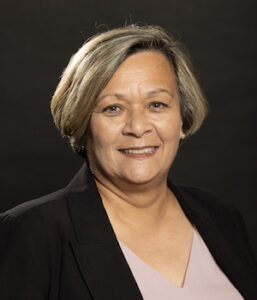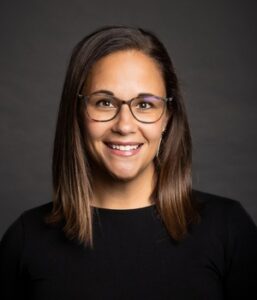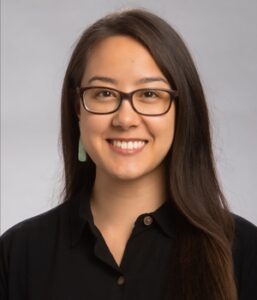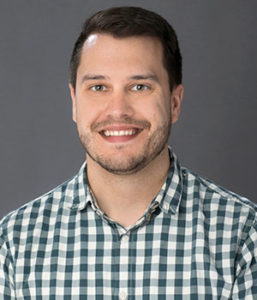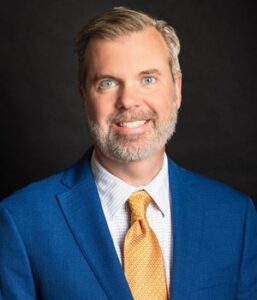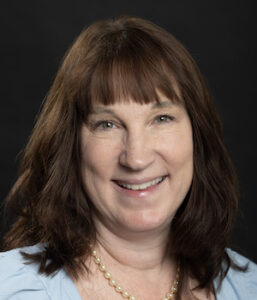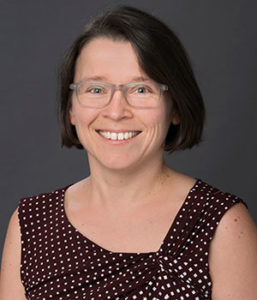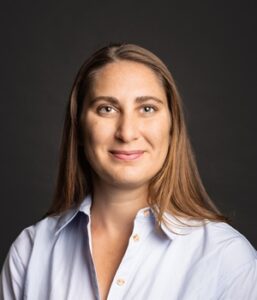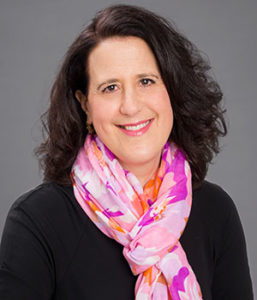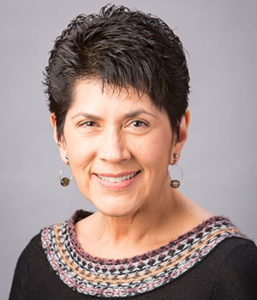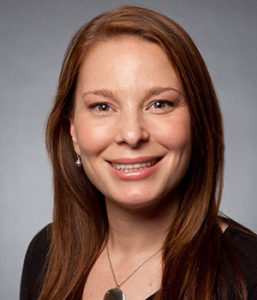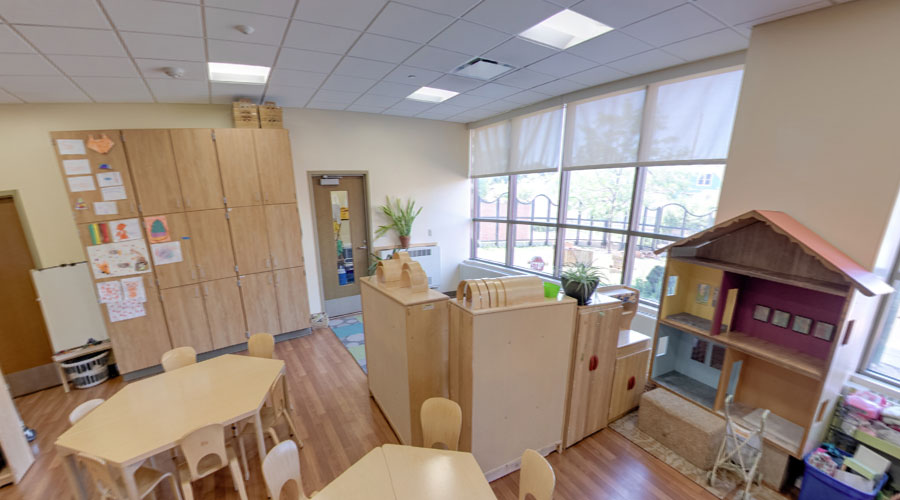Communication Sciences & Disorders MS
When the ability to communicate is disrupted, every aspect of daily life is affected. The MS Communication Sciences & Disorders is a master’s in speech pathology program that prepares you to work as a speech-language pathologist (SLP).
SLP’s work with clients and their families to improve communication skills and cope with the difficulties of communication and swallowing disorders. You’ll use your expertise to treat conditions such as stuttering, delayed language development, aphasia, dysphagia, and voice and articulation problems.
UWM’s Master of Science degree in communication sciences and disorders is accredited by the Council on Academic Accreditation (CAA) in Audiology and Speech-Language Pathology of the American Speech-Language-Hearing Association. View more accreditation information here.
Program Type
Master’s
Program Format
On Campus
Communication Sciences & Disorders is…
“the academic discipline which involves the study of speech, language, communication and swallowing disorders as well as hearing, balance and related disorders.”
As a speech-language pathologists you will evaluate, treat and assist clients and their families to improve communication skills and cope with the difficulties of communication disorders.
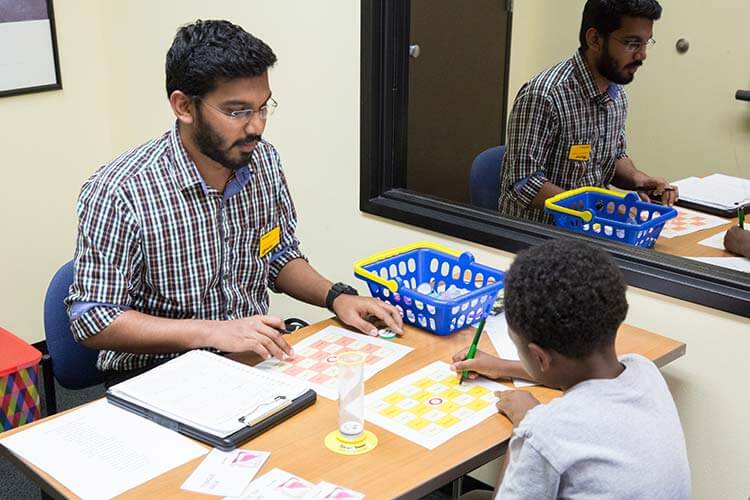
- Our master’s in speech pathology program – which includes training in the CSD Speech and Language Clinic and two full-semester placements in the community with the option of a third mini-placement— prepares you for both educational and medical settings to maximize your career flexibility.
- All of our students have the opportunity to participate in research, either through a thesis or research experience by working closely with a faculty mentor on their research projects.
- Our dedicated, caring faculty members are committed to your success, whether that’s by making time for a one-on-one meeting or observing and consulting on difficult cases in the clinic.
- We offer all of the opportunities of a metropolitan area at an affordable price. Our location gives you easy access to off-campus externships in medical, rehabilitation and school sites.
MS Communication Sciences & Disorders Student Handbook (PDF)
Employment Outlook
Earnings
According to the U.S. Bureau of Labor Statistics, the median annual wage for speech-language pathologists was $89,290 in May 2023.
ASHA’s SLP Health Care 2023 Survey (PDF) reported a median annual salary in 2023 of $87,000 for speech-language pathologists employed in medical and nursing-related facilities.
ASHA’s SLP Schools Survey 2022 (PDF) reported a median 9-10 month salary of $69,000, and a median 11-12 month salary of $80,000 for speech-language pathologists employed in school-based settings.
Expected Growth
Employment of speech-language pathologists is projected to grow 19% from 2022 to 2032, much faster than the average for all occupations.
Successful Alumni
The School of Rehabilitation Sciences & Technology has many successful alumni. These alumni have taken their Athletic Training, Communication Sciences & Disorders, Occupational Therapy, Sciences & Technology and Physical Therapy educations and have excelled in their careers.
Visit our Alumni page and be inspired by where a health sciences degree can take you.
Related Programs
A bachelor’s degree from an accredited college or university must be completed before the first term of enrollment in the MS-CSD program.
You must also meet specific departmental requirements for undergraduate coursework in the field. Students may be admitted with as many as two course deficiencies, however, they must be completed during the first year of the graduate program.
If you have an undergraduate degree in communication sciences and disorders, speech and hearing sciences or speech-language pathology, you will have completed these requirements during your undergraduate studies.
If you have an undergraduate degree in another field, you must have completed 15 credits in communication sciences and disorders, including courses in English phonetics, language development and anatomy and physiology of the speech and hearing mechanism to be eligible to apply to the program. Students must also have completed 27 credits in communication sciences and disorders, including speech and/or hearing science, introduction to audiology, aural rehabilitation and statistics, in addition to the courses listed above before beginning the master’s in speech pathology program.
UWM offers a sequence of courses designed to meet these requirements. The UWM post-baccalaureate program, also called the “leveling” program, is available here:
UWM CSD Post Baccalaureate Non-Degree Special Program (PDF)
For questions concerning UWM’s Post Baccalaureate Program, please contact the Undergraduate and Post Baccalaureate Program Coordinator, Barbara Roa Pauloski, PhD, CCC-SLP, at pauloski@uwm.edu.
If you have questions about your eligibility to apply for our program, please contact Graduate Program Coordinator Shelley K. Lund, PhD, CCC-SLP, at 414-229-6465 or sklund@uwm.edu.
Application Instructions
To apply to the MS Communication Sciences & Disorders program, all application materials must be verified by the Communication Sciences and Disorders Centralized Application Service (CSDCAS) by Jan. 15 of the year of expected admission. Students are accepted for a fall term start date.
In order to apply to the UWM graduate program in Communication Sciences and Disorders, you must have completed 15 undergraduate credits in Communication Sciences and Disorders (excluding sign language) by the application deadline. Your application will be reviewed once it is complete and verified. Your application and transcripts must be verified by Jan. 15.
Completed applications must have the following:
- All sections of the CSDCAS application completed including the Supporting Information section. We are especially interested in your experiences in extracurricular activities, community service, leadership, research and any work (volunteer or paid) in CSD-related activities.
- Official transcripts from every accredited U.S. college or university attended. Be sure to complete an academic update to submit a transcript with your fall grades and spring in-progress courses.
- You need to submit three letters of recommendation. Only three letters will be reviewed, so choose your three letters carefully. You should choose letter writers who know you well and can speak to your academics, research experience (if applicable), life experiences and personal characteristics. The letters will be rated based on the letter writer’s description of your academics and personal characteristics. It is strongly recommended that at least two letters are from people who know you academically, ideally within communication sciences and disorders. However, we will still evaluate letters from individuals in other academic programs and rate letters from non-academic sources such as supervisors at your place of employment. These letter writers should be able to speak about exceptional personal characteristics and life, academic and leadership experiences. Please note, we will have more difficulty rating letters from individuals with close, personal connections to you, such as relatives and close family friends.
International Applicants must also include:
- Transcripts from institutions outside the United States must be submitted for an academic credential review by a foreign transcript evaluation service. Please allow additional time for your application to be processed. For assistance with transcript translation, please contact the UWM International Education Center at (414) 229-4846.
- For international candidates whose native language is not English and who have not completed their undergraduate coursework in the United States, the TOEFL or IELTS must have been taken within 12 months of the date of application. Documentation of taking the exam as well as the score must be submitted to CSDCAS no later than January 15.
International applications can take much longer to process and verify so please submit your application as early as possible.
Review of Applications
We will evaluate your application holistically. That means we look at multiple parts of the application to evaluate the following areas:
- Academic skills (GPA overall and in CSD major)
- Writing skills (Four short answer questions)
- Service, Leadership and CSD related experiences (short answer questions, letters of recommendation, volunteer and work experience, extracurricular activities)
- Oral communication (video response)
- Personal characteristics (short answer questions, video response, letters of recommendation)
Once recommended for acceptance to the master’s in speech pathology program, you will need to apply to and be accepted by the UWM Graduate School.
For information regarding required course sand course descriptions, see the UWM Academic Catalog.
The master’s in speech pathology program typically takes six semesters to complete. Listed below is a sample program exact sequencing and scheduling of courses will depend upon course deficiencies, electives selected, and scheduling of externships.
Year 1
Fall Semester – 14 credits
| Course Number | Course Name | Credits |
|---|---|---|
| COMSDIS 701 | Research Design and Methods in Communication Sciences and Disorders | 3 |
| COMSDIS 703 | Voice Disorders | 2 |
| COMSDIS 706 | Language Assessment and Intervention | 3 |
| COMSDIS 712 | Acquired Neurogenic Communication Disorders in Adults | 3 |
| COMSDIS 720 | Advanced Clinical Practice in Speech-Language Pathology | 3 |
Spring Semester – 14 credits
| Course Number | Course Name | Credits |
|---|---|---|
| COMSDIS 702 | Clinical Phonology and Articulation | 2 |
| COMSDIS 709 | Evaluation and Management of Swallowing Disorders | 3 |
| COMSDIS 710 | Motor Speech Disorders | 3 |
| COMSDIS 715 | Assessment and Intervention in Augmentative and Alternative Communication | 3 |
| COMSDIS 720 | Advanced Clinical Practice in Speech-Language Pathology | 3 |
Summer Semester – 5-7 credits
| Course Number | Course Name | Credits |
|---|---|---|
| COMSDIS 725 | Speech/Language Services in Educational and Medical Environments | 2 |
| Possible Elective | 2 | |
| COMSDIS 720 | Advanced Clinical Practice in Speech-Language Pathology | 3 |
Year 2
Fall Semester – 10-12 credits
| Course Number | Course Name | Credits |
|---|---|---|
| COMSDIS 670 | Advanced Procedures in Aural Rehabilitation for the SLP | 3 |
| COMSDIS 704 | Speech Fluency and Stuttering | 3 |
| COMSDIS 724 | Clinical Experiences in Speech Language Pathology | 2 |
| Possible Elective | 2 | |
| COMSDIS 784 | Professional Portfolio Development I | 1 |
| Possible Elective | 1 |
Spring Semester – 7-10 credits
| Course Number | Course Name | Credits |
|---|---|---|
| Possible Elective | 2 | |
| COMSDIS 731 | Speech-Language Pathology Internship Course in the Education Environment | 2 |
| COMSDIS 732 | Speech-Language Pathology Internship Lab in the Education Environment | 4 |
| COMSDIS 785 | Professional Portfolio Development II | 1 |
Summer Semester – 6 credits
| Course Number | Course Name | Credits |
|---|---|---|
| COMSDIS 729 | Speech-Language Pathology Internship Course in Medical Environments | 2 |
| COMSDIS 730 | Speech-Language Pathology Internship Lab in Medical Environments | 4 |
Core Functions
Core functions, as distinguished from academic standards, are those communicative, motor and physical, cognitive, sensory/observational and behavioral/social skills that are necessary to meet graduate and professional requirements as assessed by state licensure and national certification agencies, and are thus necessary for satisfactory completion of clinical practicum requirements.
A guide for future practitioners in Audiology and Speech-Language pathology: Core Functions
- Clinical Assistant Professor, Communication Sciences & Disorders
- behrman@uwm.edu
- Enderis Hall 867
- Clinical Associate Professor, Communication Sciences & Disorders
- Director of Clinical Education, Communication Sciences & Disorders
- belterem@uwm.edu
- 414-251-8293
- Enderis Hall 857
- Administrative Assistant II, Communication Sciences & Disorders
- taylo528@uwm.edu
- 414-251-5659
- Enderis Hall 865
- Clinical Assistant Professor, Communication Sciences & Disorders
- afollmer@uwm.edu
- 414-251-6987
- Enderis Hall 885
- Professor, Communication Sciences & Disorders
- heilmanj@uwm.edu
- 414-229-4625
- Enderis Hall 875
- Clinical Associate Professor, Communication Sciences & Disorders
- dmhennes@uwm.edu
- 414-251-9433
- Enderis Hall 871
- Associate Professor, Communication Sciences & Disorders
- Program Director, Communication Sciences & Disorders
- heuer@uwm.edu
- 414-251-6174
- Enderis Hall 859
- Clinical Assistant Professor, Communication Sciences & Disorders
- kl@uwm.edu
- 414-251-9194
- Enderis Hall 859
- Associate Professor, Communication Sciences & Disorders
- Director, Communication Sciences & Disorders Graduate Program
- sklund@uwm.edu
- 414-229-6465
- Enderis Hall 855
- Clinical Associate Professor, Communication Sciences & Disorders
- mazurcza@uwm.edu
- 414-251-7293
- Enderis Hall 869
- Associate Professor, Communication Sciences & Disorders
- Undergraduate Program Coordinator, Communication Sciences & Disorders
- pauloski@uwm.edu
- 414-229-6719
- Enderis Hall 845
- Senior Clinical Audiologist, Communication Sciences & Disorders
- ryanst@uwm.edu
- 414-607-0910
- UW-Milwaukee Audiology Group
- Associate Professor, Communication Sciences & Disorders
- jyang888@uwm.edu
- 414-251-8161
- Enderis Hall 873

